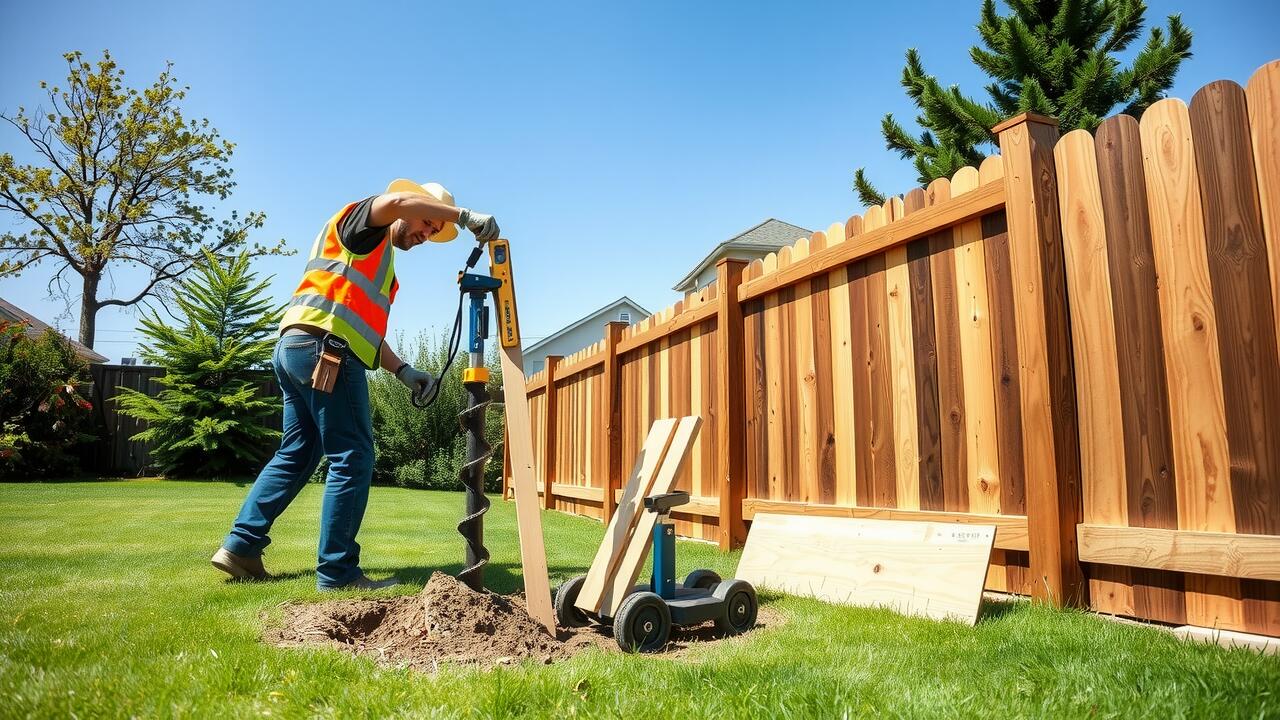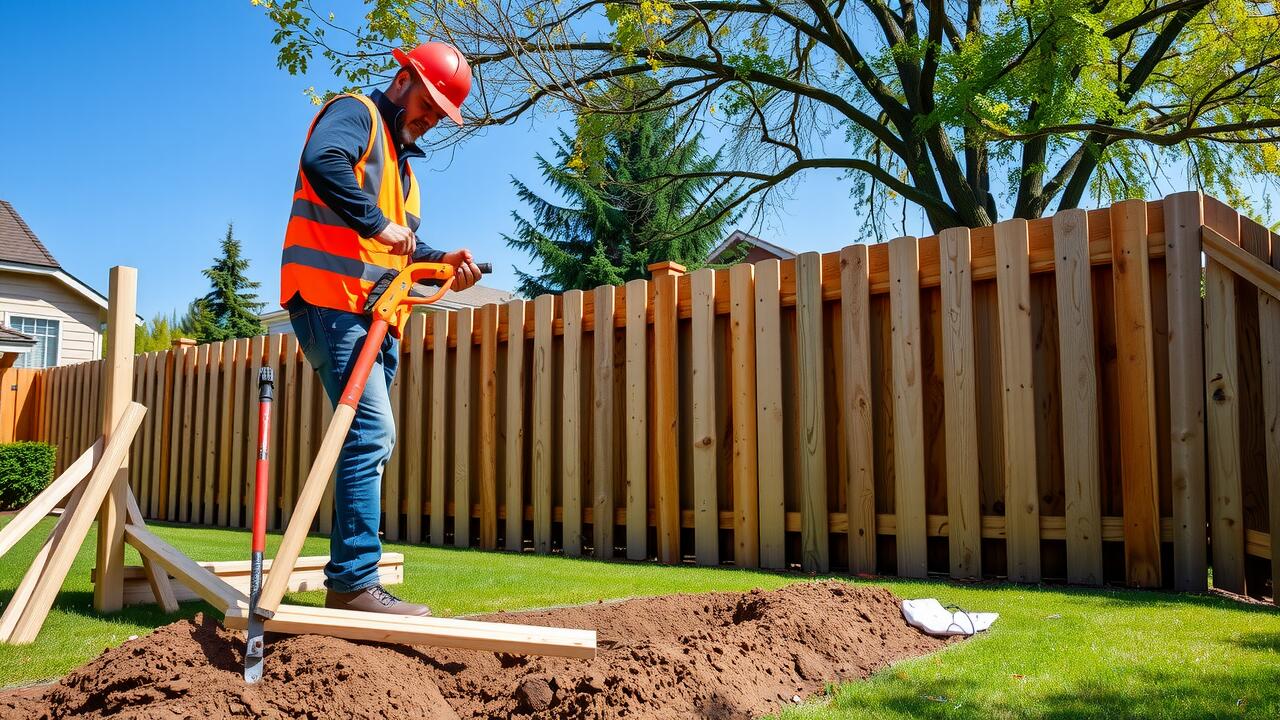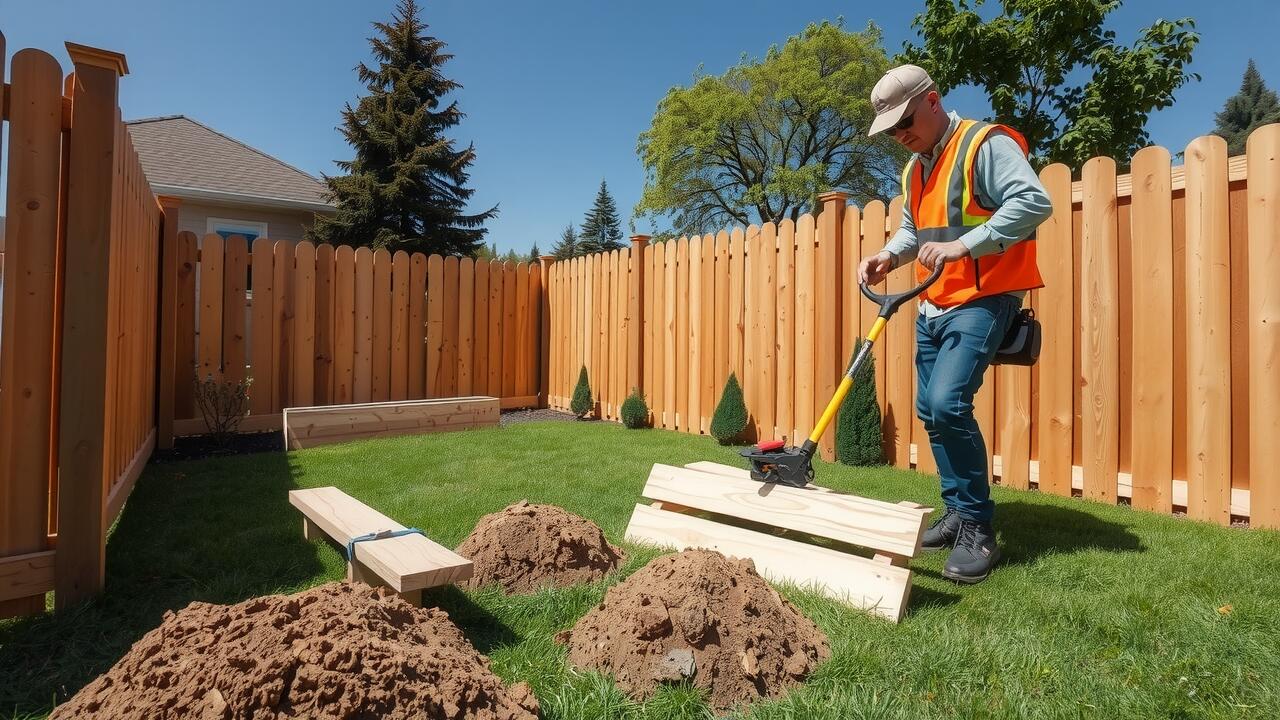
Table Of Contents
Understanding Local Regulations
Local regulations play a crucial role in the fence installation process. Different municipalities have specific guidelines in place that dictate everything from height limits to acceptable materials. Homeowners must familiarize themselves with these regulations before purchasing materials or starting construction. Obtaining relevant information can often prevent costly mistakes and ensure compliance with local ordinances.
In addition to understanding height and material restrictions, homeowners should also be aware of potential setback requirements. These regulations designate how far a fence must be set back from property lines. In some areas, homeowners may need to acquire permits before commencing fence installation. Checking with local zoning offices can provide clarity on these rules, helping to streamline the installation process.
Permits and Restrictions for Fence Installation
Before starting any fence installation, it’s crucial to understand the local regulations that govern property boundaries and construction. Many municipalities require property owners to obtain permits before proceeding with installation. These permits ensure that the fence adheres to safety standards and does not violate zoning laws. Failure to secure the necessary permits can lead to fines or forced removal of the fence.
In addition to permits, there may be specific restrictions on the height, materials, and design of the fence. Some neighborhoods have homeowner association rules that dictate what types of fences are acceptable. It’s important to research these regulations before making plans for fence installation. Consulting with local authorities or a professional contractor can provide insights into any limitations you may face.
Comparing DIY vs. Professional Installation
Choosing between DIY and professional fence installation involves considering both time and skill level. A DIY approach can be cost-effective and allows for complete creative control over the project. Homeowners can select materials and styles that fit their vision. However, it requires a significant investment of time and effort, alongside the necessity of having the right tools and knowledge about proper installation techniques.
On the other hand, hiring a professional for fence installation brings expertise and efficiency to the job. Professionals understand local codes and regulations, which can save time and prevent potential legal issues. They also bring experience in handling unexpected challenges during installation. While this option typically comes at a higher financial cost, it may provide peace of mind through quality assurance and a finished product that meets local standards.
Pros and Cons of Each Approach
Choosing between DIY and professional fence installation requires considering various factors. A DIY project can provide a sense of accomplishment and save money on labor costs. Homeowners may also have more control over the materials and design, allowing for personalization. However, this approach demands a time commitment and some level of skill. Mistakes can lead to additional expenses or improper installation, which might result in future repairs.
On the other hand, hiring a professional for fence installation streamlines the process. Experts come equipped with the necessary tools and experience, often ensuring a quicker installation. They can also navigate local regulations and permitting more efficiently. The downside includes higher costs, as labor fees can significantly increase the overall budget. Additionally, finding a reputable contractor involves research and can take time, with no guarantees of satisfaction if the wrong choice is made.
Seeking Multiple Quotes
Obtaining multiple quotes for fence installation is an essential step in ensuring that you receive a fair price and quality service. Start by researching local contractors and identifying those who specialize in fencing. After compiling a list, reach out to each contractor to discuss your project. Provide them with the same specifications, such as materials and dimensions, so that the quotes reflect comparable offerings. This process allows you to gauge market rates and provides leverage when negotiating.
When reviewing the quotes, pay attention not only to the overall cost but also to the details of the proposal. Look for specifics regarding materials, labor, and timelines for completion. Ask questions about warranty and maintenance options, as these factors can significantly influence your final decision. In addition to pricing, consider the contractor’s reputation, past work, and customer reviews. This careful evaluation helps ensure that your fence installation will meet your expectations and budget.
How to Choose the Right Contractor
Choosing the right contractor for fence installation involves careful consideration of several factors. Start by researching local companies that specialize in this type of work. Look for contractors with good reviews and a solid reputation in the community. Gathering recommendations from friends and family can also be helpful. Ensure the contractors are licensed and insured to protect yourself from potential liabilities during the installation process.
Once you have a shortlist of potential contractors, obtain estimates from each one. Ask about their experience with fence installation and request to see samples of their previous work. Communication is key, so pay attention to how responsive they are to your queries. This can give you insight into their professionalism and customer service approach. Comparing the estimates alongside their qualifications will help you make a well-informed decision.
FAQS
What factors should I consider when estimating the cost of a fence installation?
When estimating the cost of a fence installation, consider factors such as the type of fence material, the length and height of the fence, local labor costs, any necessary permits, and additional features like gates or decorative elements.
Do I need a permit to install a fence?
Yes, in many areas, a permit is required to install a fence. It’s important to check local regulations and zoning laws to determine the specific requirements for your location.
What are the benefits of hiring a professional for fence installation?
Hiring a professional can save you time and effort, ensure proper installation according to local codes, and often comes with a warranty for the work done. Professionals also have access to tools and materials that may not be readily available to DIYers.
How can I compare quotes from different contractors effectively?
To compare quotes, ensure that each contractor provides a detailed breakdown of costs, including materials and labor. Evaluate their experience, reviews, and whether they include warranties or guarantees with their services.
What are the main pros and cons of DIY fence installation?
The pros of DIY fence installation include potential cost savings and the satisfaction of completing the project yourself. However, cons may include a lack of expertise, the possibility of mistakes, and the time and effort required to complete the installation properly.

